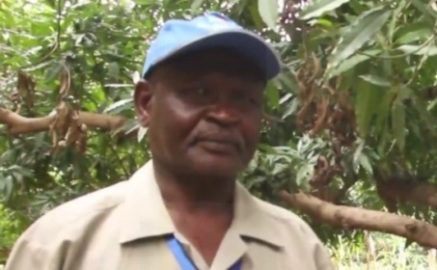SPLM-N al-Hilu calls for cross-border humanitarian corridors
October 16, 2017 (KHARTOUM) – The Sudan People’s Liberation Movement-North led by Abdel Aziz al-Hilu (SPLM-N al-Hilu) Monday said they stick to the relief delivery through humanitarian corridors from abroad and inside the country alike.

To overcome this hurdle, Washington at the time proposed to transport a direct medical assistance to the rebels instead of the cross-border aid. Khartoum accepted it but not the SPLM-N.
However, the SPLM-N secretary General Amar Deldoom emphasized that they want the humanitarian assistance to be delivered through internal and external corridors as Bürgenstock agreement signed with the government in 2002.
On 19 January 2002 in Switzerland, Abdel Aziz al-Hilu representing the SPLM signed a cease-fire and relief and rehabilitation agreement with the government brokered by the United Nations. According to the signed deal, the parties agreed to “facilitate humanitarian assistance through the opening up of humanitarian corridors” from inside or outside the country.
Speaking in a video interview done and aired by the Sudanese Congress Party (SCoP) on its Facebook page from the Nuba Mountains, Deldoom stressed that Bürgenstock agreement was negotiated by the same parties for the same area and wondered why the government now changed its mind.
“What is new? Why did the government accepts the multiple (humanitarian) paths in 2002 and rejects it today, so we accept the entry of humanitarian aid from multiple routes, apart from inside and another part coming from abroad? This is our position, and it is constant,” he said.
Based on the Operation Lifeline Sudan (OLS) from 1989 to 2005, the government refuses to allow the delivery of relief from outside the country without controlling it saying the rebel used the aid to consolidate their control on the population and used it to feed their soldiers. Also, it says the rebel uses it to transport arms and ammunition.
During the peace talks brokered by the African Union in Addis Ababa, the United Nations tried to bring the needed guarantees to reassure the government by including the deployment of monitors from the African Union and the Arab League in the rebel areas.
Deldoom, also, repeated their demand for the self-determination saying they want the Sudan to be built on new bases and it the government fails to reach agreement on this new social pact they prefer to have an independent state in the Nuba Mountains.
Earlier this year, al-Hilu criticized the SPLM-N Secretary General Yasir Arman who was also the chief negotiator for refusing to follow his demand to include the self-determination in the SPLM-N position-paper for the agenda of the peace talks.
The right to self-determination was included by the SPLM-N al-Hilu in the final communiqué of its extraordinary general conference held in the Nuba Mountains from 8 to 12 October 2017.
However, the Sudanese government swiftly reacted refusing any negotiations based on the self-determination, announcing its commitment to the African Union-brokered Roadmap Agreement signed in March and August 2016 with the SPLM-N and other opposition groups.
(ST)
